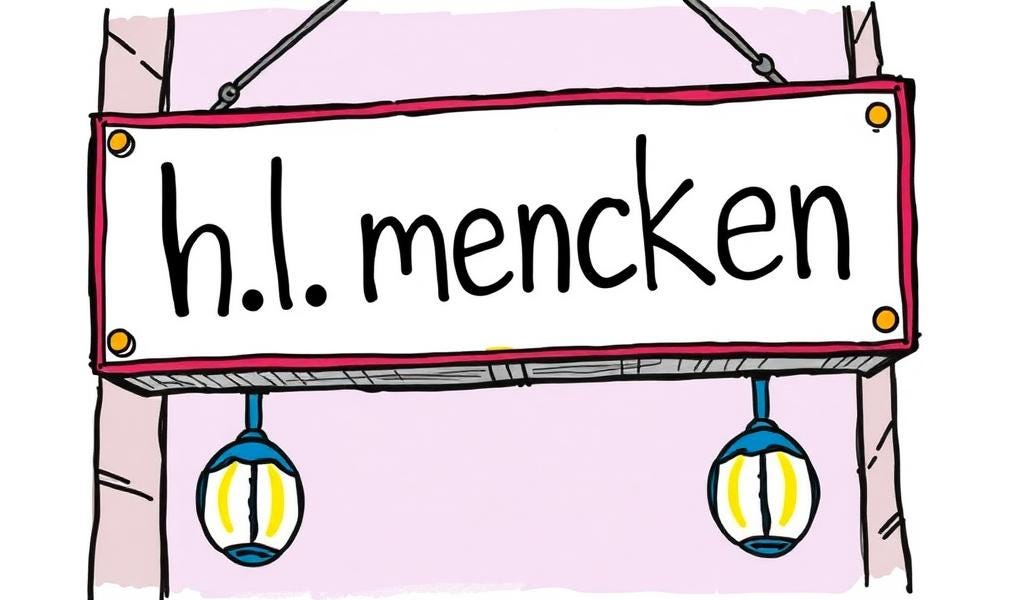The Stud that Was H.L. Mencken

Every so often, I plunge headlong into a Mencken spree, a vice I’ve nursed since the early 1990s when I first stumbled into Ann Arbor’s Dawn Treader Bookstore and smelled those old books (that odd but pleasing scent, I’m told, comes from vanilla releasing from the aging paper). I fished out three tattered paperback collections of Mencken’s essays. They were cheap but held a king’s ransom in wit.
Lately, I’ve been slogging through the six-volume brick of Prejudices, that glorious heap of essays, articles, and reviews Mencken repackaged with a sneer, plus the Second Mencken Chrestomathy, cobbled together by Terry Teachout back in the early ’90s when the world still had a pulse.
The Sage of Baltimore towered over the 1920s, that fleeting zenith of “peak literary culture” before the radio’s syrupy glow started our metamorphosis into a nation of passive receptor sedentaries.
Print was the game then. And Mencken? He was the barker, the juggler, the lion-tamer all in one, dazzling readers with his pen. Few could match his relentless, cackling gusto. By his own tally, he had spewed out over five million words before the reaper called.
He figured his stuff would wither fast, tied as it was to the “portentous” claptrap of his day. He wrote period pieces, so he figured they were destined for the future dustbin. But no, they’ve stuck around, stubborn as crabgrass.
Why?
Teachout calls it “baffling,” and I’ll drink to that.
Maybe part of Mencken’s enduring appeal is how he swung his axe at that sanctimonious Puritan Progressivism, the same bilge that oozed from Plymouth Rock in 1620 and still fouls our air today. It’s a perennial American problem so a writer like Mencken who attacked it will have perennial appeal.
Read the rest


